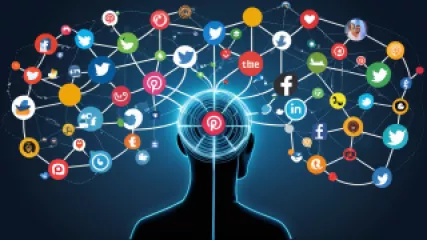How Does Social Media Impact Mental Health?
How Does Social Media Impact Mental Health?
In today's digital age, social media has become an integral part of our lives, connecting us with friends, family, and the world around us. However, the impact of social media on our mental health has been a growing concern, with numerous studies exploring the complex relationship between the two. In this article, we will delve into the ways in which social media can affect our mental well-being, and explore strategies to navigate this dynamic landscape.
The Double-Edged Sword of Social Media
Social media platforms offer a multitude of benefits, from staying connected with loved ones, to accessing information and entertainment. However, these same platforms can also have a profound impact on our mental health, both positively and negatively.
The Positive Impact of Social Media
One of the primary ways in which social media can positively impact mental health is through its ability to facilitate social connection. In a world where physical distance can be a barrier, social media platforms allow us to maintain relationships, share experiences, and feel part of a larger community. This sense of belonging and social support can be particularly valuable for individuals who may be isolated or have difficulty forming in-person connections.
Additionally, social media can serve as a tool for self-expression and creativity. Many individuals use these platforms to showcase their talents, share their passions, and connect with like-minded individuals. This can foster a sense of purpose, boost self-esteem, and provide an outlet for personal growth and development.
Furthermore, social media can be a valuable resource for accessing mental health information and support. Platforms like Instagram, Twitter, and Facebook host a wealth of educational content, support groups, and resources related to mental health, providing individuals with the opportunity to learn, connect, and seek help when needed.
The Negative Impact of Social Media
While the positive aspects of social media are well-documented, the potential negative impacts on mental health have also been the subject of extensive research. One of the primary concerns is the phenomenon of social comparison. When scrolling through social media, individuals are often exposed to carefully curated and idealized versions of their peers' lives, which can lead to feelings of inadequacy, low self-esteem, and even depression.
Another significant concern is the impact of social media on anxiety and stress levels. The constant need to stay connected, respond to notifications, and keep up with the latest updates can contribute to feelings of overwhelm and anxiety. Additionally, the pressure to present a perfect, carefully crafted image of one's life can add to the stress and pressure experienced by social media users.
Social media has also been linked to the development of addictive behaviors. The constant stimulation and gratification provided by likes, comments, and shares can trigger the release of dopamine in the brain, leading to a cycle of compulsive use and dependence. This can negatively impact an individual's ability to focus, maintain healthy sleep patterns, and engage in other important activities.
Furthermore, social media can be a breeding ground for cyberbullying, hate speech, and other forms of online harassment. These experiences can have a devastating impact on an individual's mental health, leading to feelings of isolation, anxiety, and even suicidal ideation.
Navigating the Social Media Landscape
Given the complex and multifaceted nature of the relationship between social media and mental health, it is essential to develop strategies to navigate this landscape effectively. Some key tips include:
Establishing Healthy Boundaries
Setting clear boundaries around social media use, such as limiting the time spent on these platforms, can help mitigate the negative impacts. This may involve turning off notifications, setting screen time limits, or scheduling social media breaks throughout the day.
Fostering Balanced Perspective
Recognizing that social media often presents a curated and idealized version of reality can help individuals develop a more balanced perspective. Encouraging critical thinking and awareness of the potential for social comparison can aid in maintaining a healthy sense of self-worth.
Prioritizing In-Person Connections
While social media can facilitate social connection, it is essential to balance virtual interactions with meaningful in-person relationships. Engaging in face-to-face activities, such as meetups, community events, or simply spending quality time with loved ones, can help mitigate the negative impacts of social media use.
Seeking Professional Support
For individuals struggling with the negative effects of social media on their mental health, seeking professional support from a therapist or counselor can be highly beneficial. These professionals can provide guidance, coping strategies, and a safe space to explore the underlying issues.
The Future of Social Media and Mental Health
As the role of social media in our lives continues to evolve, it is crucial that we remain vigilant and proactive in addressing its impact on mental health. Ongoing research, education, and the development of effective tools and resources will be essential in navigating this complex and ever-changing landscape.
Ultimately, the key to a healthy relationship with social media lies in striking a balance, prioritizing self-care, and maintaining a nuanced understanding of its potential impacts on our well-being. By doing so, we can harness the benefits of these powerful platforms while mitigating the risks and safeguarding our mental health.
Conclusion
The impact of social media on mental health is a multifaceted and complex issue that requires a thoughtful and multidimensional approach. By understanding the potential positive and negative effects, and implementing strategies to navigate the social media landscape, individuals can take proactive steps to protect and promote their mental well-being in the digital age.
Ron Davidson is a freelance writer and mental health advocate who has been exploring the intersection of technology and mental health for the past decade. In this article, he draws upon his extensive research and personal experiences to provide a nuanced and insightful perspective on the impacts of social media on mental health.






